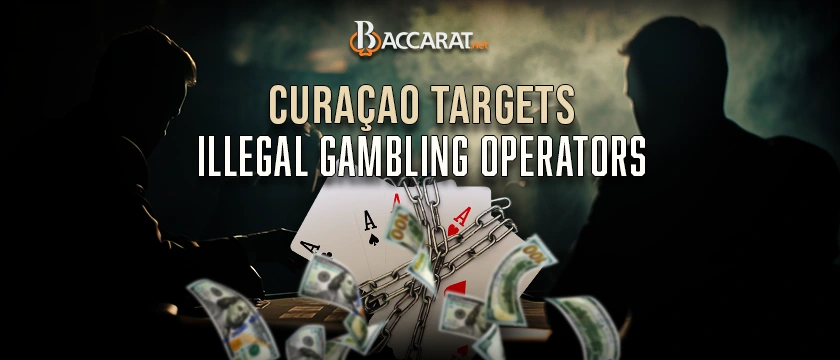
Listen to this article:
When looking for the best casinos at which to play online baccarat, you will have no doubt come across many licensed by the Curaçao Gaming Authority (CGA). For many years, the CGA was associated with low standards of player protection and fairness; however, over the last few years, the authority has been undergoing a major overhaul, and it recently issued a new statement reinforcing its commitment to combating illegal gambling activity in the jurisdiction.
According to the CGA, businesses registered in Curaçao but operating under foreign licenses are now officially on notice. Earlier this month, the regulator said that it will soon issue formal cease-and-desist letters to all Curaçao-registered businesses using foreign licenses. Such operations go against the rules in the National Ordinance for Games of Chance (LOK), which makes it illegal to organize or offer games of chance in or from Curaçao without a CGA-issued license.
In its statement, the CGA drew attention to Article 1.2(1) of the LOK, which prohibits such practices. It noted that many operators holding foreign B2B licenses are misleading both players and providers, and that they may be contributing to a black-market of illegal gaming activity. The CGA also said that doing this could also be in breach of Curaçao’s Criminal Code.
Rehabilitating the CGA’s International Reputation
This warning is part of the jurisdiction’s wider effort to rebuild its international reputation. For years, Curaçao’s master license system had been a point of contention. It allowed sub-licensing practices that were difficult to monitor and provided loopholes for companies seeking lighter regulation. However, this structure has now been removed and replaced with a new system designed to meet global standards.
The transition has not been without challenges. The LOK was approved in December 2024 and replaced the outdated framework from the 1990s. However, the CGA is dealing with a backlog of license applications, and many of them did not contain all the required documentation. Nonetheless, despite these delays, the regulator has made it clear that compliance is no longer optional.
As part of the change, provisional ‘Green Seal’ B2C and B2B licenses have been extended until 24 December 2025. This gives operators extra time to align with the LOK’s new rules, including offering dispute resolution tools and complying with stricter anti-money laundering (AML) protocols.
When granting the extension, the CGA said:
“Operators licensed by or after 25 December 2024 should be compliant or show significant progress in relation to their issued checklists including additional requirements under LOK during the first six-month period from the date of issuance of their provisional licence. An extension of up to a maximum of six months, or the issuance of a full licence, will depend on the level of progress demonstrated by the operator.”
Reaching Settlements with Online Operators
Recent actions by the CGA show that it is serious about its efforts to clean up its act. Earlier this month, the Public Prosecutor’s Office (PPO) announced a settlement with 12 unnamed online casino operators for serious Know Your Customer (KYC) failures. The investigation, codenamed Operation Nebraska, found widespread failures to verify player identities, which is a breach of Curaçao’s anti-money laundering law.
The settlement amounted to 360,000 Caribbean Guilder (roughly €170,412), and it was a landmark moment for the jurisdiction as it was the first time its online gambling sector had been held accountable for AML non-compliance. One of the companies involved failed to meet its payment obligations, which means that prosecutors will now proceed with court action.
For the first time, Curaçao is under genuine international pressure to bring its regulatory standards up to par, and the CGA has responded by increasing transparency, tightening licensing rules, and targeting companies that fall short.
It is no surprise, though, that it has been hard work. Allegations of corruption and fraud were made in 2024, with local politician Luigi Faneyte claiming licenses were being issued unlawfully. The CGA has denied these accusations, calling the process a “comprehensive licensing process,” and reiterating that it has full legal authority to grant, revoke, or amend licenses.
Nonetheless, it is clear that the CGA is no longer turning a blind eye. With cease-and-desist notices and new rules being actively enforced, it should now be clear to operators doing business in Curaçao that they must align with the new regulatory expectations or face legal consequences.

Hi, I’m Caroline, an experienced editor with a rich background in journalism. My career began at several Boston-based newspapers, where I specialized in editing and …


